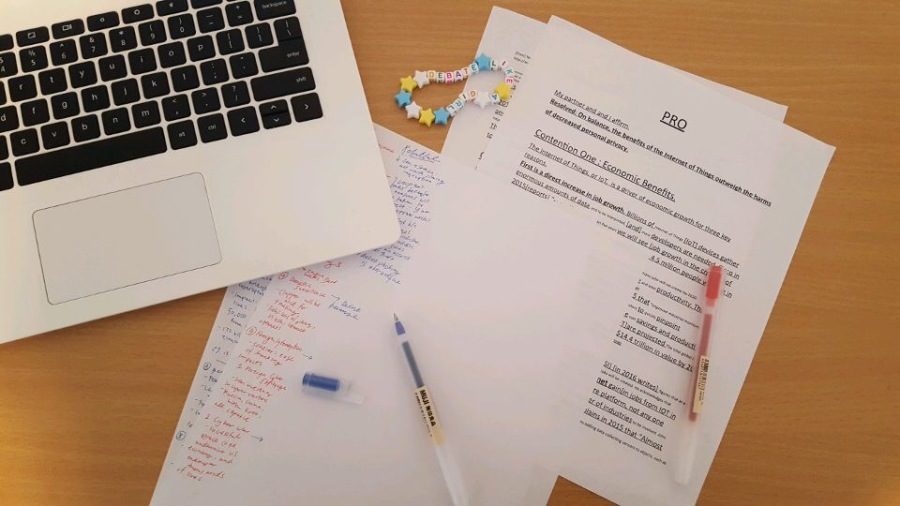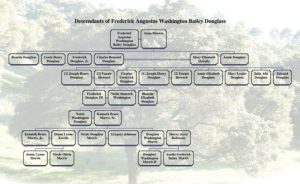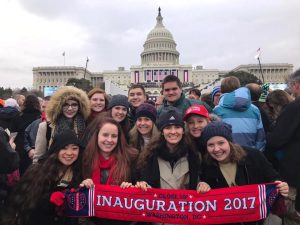For the sake of argument
The benefits of high school debate
Pictured is a glimpse into a debater’s typical work desk. “Debate, depending on how much work you want to put into it, can take up an hour, 5 hours, or 15 hours of work per month,” Public Forum debater Madi Hynson said. “It really varies on how passionate you are about it. For me and the rest of the Starr’s Mill team, we really try to spend as much time as possible researching topics and preparing for upcoming tournaments.”
March 16, 2017
Throughout the years, debate has become a widespread activity among high school students across the nation. From acknowledging the benefits of timely preparation to improving public speaking skills, high school debate has been successful in equipping its participants with the essential skills to excel while providing a host of valuable experiences in a competitive atmosphere.
Despite being a well-known example of an intellectually stimulating high school extracurricular, the debate community is quite the enclave. It can be difficult for non-debaters to understand the basic structure of a tournament, let alone the dos and don’ts of the surprisingly complex debate culture.
Competition varies depending the form of debate, but essentially, debaters will prepare a case for each side: the affirmative, or pro, and the negative, or con. The stance of each side is dependent upon the “resolution,” or the statement each team is either affirming or negating. For example, if the resolution being debated is “Resolved: The United States should lift the embargo against Cuba,” then the pro team presents the case in favor of lifting the embargo, while the con team prepares the opposition.
Each debate round begins with a coin toss. This determines which side of the argument each team takes and which team will speak first or second. Second speaking teams are typically seen as having the advantage, having more time to prepare their speeches.
This goes on for each team in what is called “preliminary rounds.” Depending on the number of competitors, there can be anywhere from four to six prelims. Typically, after round two, debaters are “power-matched,” which simply means undefeated teams will go against undefeated teams, teams with one win will go against teams also with one win, etc. This facilitates an even playing field in debate.
Teams with the best records advance to elimination rounds. The amount of judges in these debates typically increases from one to three, creating a “panel.” This continues until the final round, in which a champion is determined.
While there are various forms of high school debate, Starr’s Mill offers instruction in two categories: Lincoln-Douglas and Public Forum.
Lincoln-Douglas is one-on-one, meaning debaters compete alone, rather than with a partner, as it is with Public Forum. The event, established in 1980, was named after the 1858 debates between Abraham Lincoln and Stephen A. Douglas regarding the morality of slavery. Thus, Lincoln-Douglas debaters, more affectionately called “LDers,” ponder these questions of morality. Sophomore and second-year LD participant Cole Wittbrodt explains what these questions might entail. “I have learned about nuclear power, court cases for police officers, first amendment rights, and homelessness in the United States,” Wittbrodt said.
This translates to a value-heavy debate. LD often incorporates philosophy and ethics to establish the parameters on which the round should be evaluated. An LD debater can establish the value of the debate in any way they choose, making for some interesting discussion. Wittbrodt describes the flexibility of his event, saying, “I could go into a round and discuss the real world pros and cons of implementing a policy or following through with a plan, talk about how 17th to 18th century philosophers would feel about the issue, or I could question why we are even having this debate at all.”
Public Forum, on the other hand, is concerned with the more practical. The event revolves around hot-button current issues, with the intention of making the debates accessible to the average spectator.
Madi Hynson, a junior at Starr’s Mill and third year Public Forum debater, notes that being involved in debate has allowed her to become more aware of the world’s happenings and, as a result, expand her knowledge in numerous topics. “PF is specifically beneficial for gaining mass amounts of information on relevant topics. It’s helped me become well informed on everything from science-based topics, such as the Internet of Things and genetically modified organisms, to foreign policy issues like US military presence in Okinawa and the Israeli-Palestinian conflict,” Hynson said. “Most importantly though, PF forces you to evaluate the impacts of topics, which really pushes you to take a clear stance.”
Success in these events takes perseverance and preparation. Whether a debate case takes a theoretical or realist approach, evidence is needed, and debaters strive for the most reputable sources that possess sound methodology and are free of self-indictment. In addition to the primary cases, the team must also be able to anticipate and counter the opposition using substantiated arguments. “We really try to spend as much time as possible researching topics and preparing for upcoming tournaments. Although it can be pretty time-consuming, the majority of the work is something we all enjoy, making it less dreary and more exciting,” Hynson said.
Despite the demands of preparing comprehensive debate cases and valid argumentation, there are several overarching benefits to immersing oneself in the realm of debate. By participating in multiple tournaments and being exposed to debaters of varying levels of expertise, one can not only gain beneficial experience in the activity but also become better prepared for real world situations, such as public speaking and presenting information to others.
Because writing cases and performing extensive research are heavy components of the debate experience, students who are active debaters have been proven to enhance their abilities in written communication and reading comprehension from continuous practice in performing these tasks. The academic aspect of debate has “helped to narrow down my possible major and minor, improve my GPA, and sharpen my general knowledge regarding the workings of the world,” Hynson said.
Hynson has also noticed a substantial difference in her social life since joining debate. Meeting other intellectual, like-minded, individuals has not only enabled her to develop more friendships but has also influenced her to continue working hard to reach her goals and understand various perspectives. “Debate has tripled, or maybe even quadrupled, my friend group. My debate friends have pushed me to constantly work towards bigger goals for myself and to be a more positive force in my community,” Hynson said. “My experience on the national circuit has led me to meet people from all over the countries and as a result, some of my best friends are from New Jersey, Florida, New York, Boston, California, and so on. Having a friend group so geographically dispersed has helped to understand new points of view and experience new things.”
Despite close friendships made, there is also a heavily competitive atmosphere in debate. Wittbrodt describes, as one example, the phenomenon of “getting flows,” which essentially means having access to your opponent’s arguments before the round starts (a “flow” being notes taken on that debater’s case). Things can get dicey, and sometimes debaters aren’t sure what is ethical and what isn’t. “This is not problematic in itself, but when your opponent does not have access to your flows this creates an unfair advantage for one debater,” Wittbrodt said.
Overall, though, competition only makes debaters work harder and more honestly in order to get the desired results. “While sometimes the competitiveness can degrade my confidence and my intelligence, for the most part, the nature of the activity really spurs me to better myself in order to keep up with my peers,” Hynson said.
The advantages are clear, but for some debating accessing these benefits can come with extra hurdles. Hynson describes one of these issues, the fact that debate is a male-dominated activity. “Girls are often automatically seen as too aggressive whenever they speak up in rounds. Luckily, girl debaters are teaming up to advocate for increased respect and opportunities in the debate world,” Hynson said.
It is also oftentimes more difficult for low-income students to excel in debate. “Debate is probably the hardest activity for economically disadvantaged kids or schools to do well in. It demands a lot of technical training, practice, and exposure to really great debaters. The amount of money it requires is almost ridiculous; between tournament entry-fees, evidence briefs, transportation costs, debate camps, hotel fees, and other miscellaneous fiscal requirements, schools struggle to go to local tournaments, let alone the more competitive national ones,” Hynson said. “The teams that do well are teams from schools that give their debate programs consistent funding, or who have the backing of wealthy parents.”
This resource imbalance isn’t something that can be solved overnight, but Hynson feels the best way everyday debaters can work against it is by competing with integrity. This means not just presenting advocacies solely for the purpose of winning, which often results in convoluted arguments which only serve to confuse and drown out the opposition, but debate for the purpose of starting an educational discussion. “Teams who run arguments with no roots in the actual reality of the topic for the mere sake of confusing opponents really disappoint me,” Hynson explained.
This educational and honest debate, to Hynson, is unparalleled in its value. “Debate teaches me to truly care about my peers, my community, and the world. It pushes me to really think about issues, to be passionate about the stance I take, and to listen to the other side,” Hynson said.
Given the influence debate has given her, Hynson hopes that Starr’s Mill’s debate program will continue to grow in numbers and caliber. “I hope the our debate team can continue to pursue excellence both in Georgia and around the country. We want to increase the size of our team in order to really impact the lives of as many kids as we can,” Hynson said. “As a goal for the entire team, we hope to increase the acceptance of the Georgia debate circuit and help to create a truly supporting and inspiring debate community across the nation.”
The Starr’s Mill High School Speech and Debate Team competed at the GFCA Varsity State Championships from March 4-5. Wittbrodt was an octofinalist in Lincoln Douglas debate. Hynson and her partner, junior Tyler Holt, were semifinalists in Public Forum. Hynson also received the award for sixth best speaker in Public Forum. On the speech side, sophomore Michael King was a semifinalist in Original Oratory and junior Marleena Tamminen earned second place in the same event.









Tyler Holt • Apr 22, 2017 at 1:19 pm
This article has my heart.